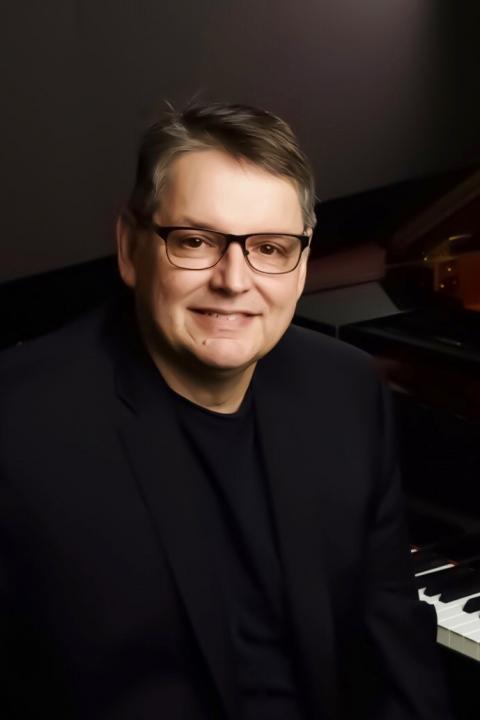
Russell Hoffmann
For media inquiries, please contact Media Relations
Russell Hoffmann is assistant professor of piano at Berklee, and is a pianist, recording artist, composer, and arranger in many styles of contemporary music, including jazz, Latin, and pop. He has served as musical director for Concord recording artist Marlena Shaw and the University of Minnesota's "Twelve Moods for Jazz" Langston Hughes project. He has performed with jazz luminaries such as Jack McDuff, James Moody, Billy Hart, Donald Harrison, Bobby McFerrin, Peter Leitch, and many of Boston's finest jazz artists.
As a clinician, Hoffmann has appeared in Berklee's Italy summer program at the Umbria Jazz Festival in Perugia, Italy; Berklee in Taipei, Taiwan; Kuala Lumpur, Malaysia; the Heineken Jazz Fest in San Juan, Puerto Rico; and the Berklee Beantown Jazz Festival in Boston, Massachusetts. He is the author of workbooks on keyboard comping, ensemble performance, and coauthor of Berklee Practice Method: Keyboard.
- Toured as musical director for Concord recording artist Marlena Shaw and the University of Minnesota's “Twelve Moods for Jazz” Langston Hughes project
- Performed with Robben Ford, Donald Harrison, Billy Hart, Peter Leitch, Jack McDuff, James Moody, Rufus Reid, and Joe Zawinul
- Compositions and arrangements performed internationally by the Berklee American Songbook Orchestra, the Boston Pops, Craig Ball and the White Heat Swing Orchestra, and the Tony Lada Quartet
- Clinician at Berklee in Umbria, Umbria Jazz Festival, Perugia, Italy; the Pan School, Tokyo, Japan; Seoul (South Korea) Jazz Academy; Fermatta in Mexico City, Mexico; Berklee in Taipei, Taiwan; BIN School, Kuala Lumpur, Malaysia; and the Berklee High School Jazz Festival
- Featured on many recordings, including with the Berklee Great American Songbook Orchestra, Mel Gordon, Tedi Marsh, Steve Rochinski, Jan Shapiro, Bob Stoloff, and the Tony Lada/Larry Monroe Sextet
- Author of Keyboard Comping and Ensemble Performance and Berklee Practice Method: Keyboard
